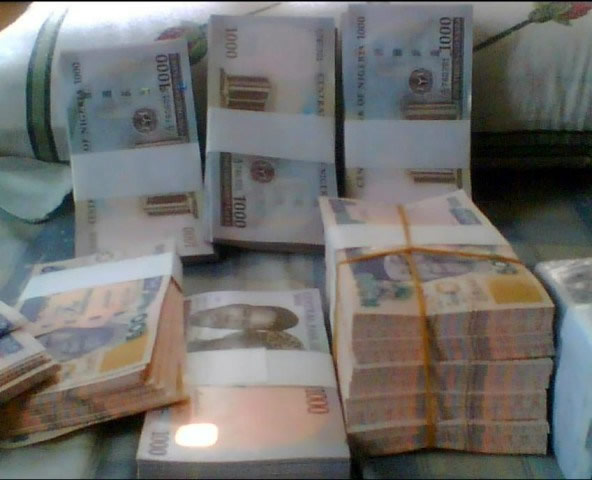Nigeria’s authorities may soon devalue the naira but won’t fully relinquish control over it, instead taking steps to narrow the gap between the official and black market rates to boost confidence in the economy, a Reuters poll showed on Friday.
A shortage of dollars in Nigeria – for big and small needs including capital imports to the manufacturing process, travel and school fees – has led the black market to charge a higher premium in compensation for that scarcity in the official market.
A Reuters survey of 18 analysts taken in the past two days showed they are sceptical of the extent officials can fully liberalise the naira after it made dollars available on Monday to a few private individuals.
The poll suggests there is a 45 percent chance that the central bank will devalue the naira in coming weeks amid speculation that the government is stepping closer to liberalising it.
The central bank this week effectively devalued the naira for private individuals by offering them dollars at a rate of 366 naira, instead of the official 305 rate which it has held since last summer at the behest of President Muhammadu Buhari.
Still, the survey further suggested that if the naira were to be devalued, any float would still be managed as the central bank intervenes to keep it within desired levels.
“We don’t expect the authorities to ever fully relinquish control over the naira. A gap to the black market is a permanent feature,” said Philip Walker of the Economist Intelligence Unit.
“However, the size of this gap will come down over time as the market realities force the hand of the authorities and the naira is repeatedly devalued over time,” Walker added.
Nigeria’s central bank auctioned $230 million in forward contracts on the official market on Thursday after selling $370 million earlier in the week to boost dollar liquidity and help narrow the gap between the official and black market rates.
The poll showed that the timing for how long it would take to narrow that gap is uncertain. Analysts say it depends on how far the central bank is willing to go, although a free float would take months instead of years to squeeze the spread between the two rates.
Devaluations are painful, mostly to the poor, as the cost of living increases. But analysts say they are necessary to fix the broader economy.
Egypt floated its currency in November, and it subsequently halved in value against the dollar. But it is now more than 20 percent above its low at 15.7 per greenback.
Financial Derivatives Company, a research think-tank in Nigeria, wrote that the only reasonable way to reduce the disparity between the interbank and black market is by restoring market confidence through the consistent implementation of transparent and market-driven policies.
“A float of the naira is not necessarily a magic wand which will resolve the current economic malaise. Instead, it will simply provide a premise for the introduction of policies, which will encourage inward investment and support economic growth.”
(Editing by Ross Finley and Hugh Lawson)


